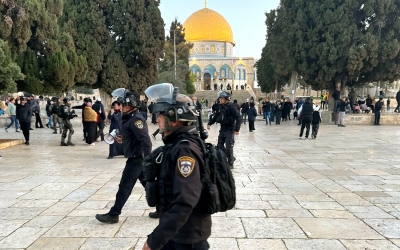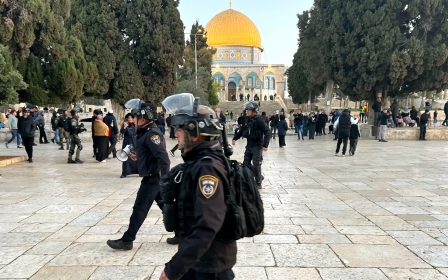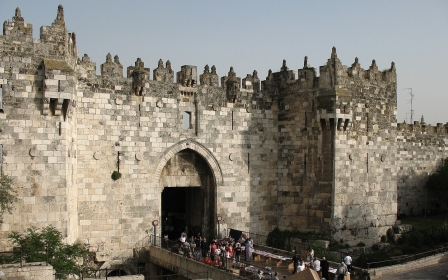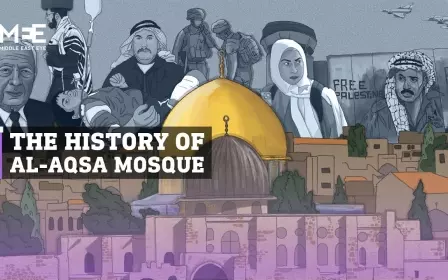Al-Aqsa: Israeli tweet scolding Palestinian children for playing football 'hypocritical'
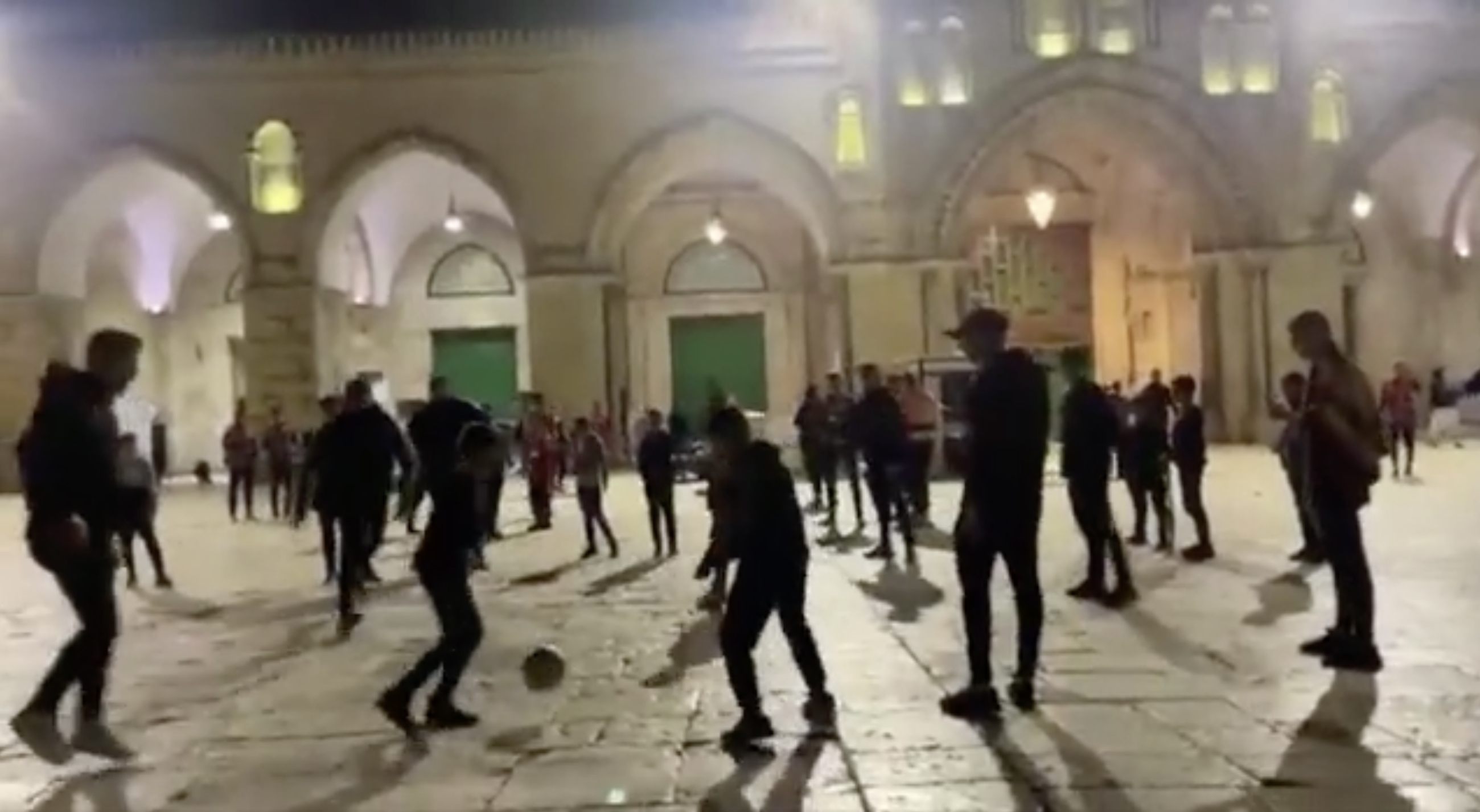
An Israeli foreign ministry tweet scolding Palestinian children for playing football on the grounds of Al-Aqsa Mosque has been condemned and branded hypocritical on social media.
The Israeli ministry posted a video on Saturday night of teenagers playing football with the caption: "Meanwhile, soccer matches are being held just next to the mosque. Is this how the sanctity of the place is being maintained?"
Hundreds of social media users hit out at the use of the word "sanctity", given that Israeli forces stormed the site over two successive nights last week.
"Is this your lame excuse to beat the worshippers up violently, during the holy month of #Ramadan? The irony is so thick! You talk about sanctity while disregarding Palestinian lives," one wrote.
Stay informed with MEE's newsletters
Sign up to get the latest alerts, insights and analysis, starting with Turkey Unpacked
"Israel wants you to believe that their violent raid, in which they beat people up while they were praying, is less egregious than *checks notes* playing football," tweeted journalist Yumna Patel.
Others shared footage of Palestinian worshippers being beaten and violently dragged out of the prayer hall by Israeli police.
The ministry's tweet came just days after Israeli forces brutally assaulted Palestinian worshippers over two consecutive days. The raid devastated the site, leaving windows and furniture broken inside the al-Qibli prayer hall.
“The children are playing in the yards surrounding Al-Aqsa Mosque, not inside the mosque itself, and that is not something that is considered unlawful according to Islam, nor does it desecrate the sanctity of the mosque,” Mouad Khateb, a Jerusalem resident and activist, told Middle East Eye.
Many Muslims also encourage sport and other activities in and around mosques to increase the sense of community and enjoyment surrounding houses of worship.
“If the ministry is so concerned about the sanctity of the mosque, we expect them to condemn cursing the Prophet Muhammad by settlers who storm the mosque day and night; we expect them to call out the brutality of the police against the worshippers,” Khateb said.
Al-Aqsa Mosque is believed by Muslims to be the place from which the Prophet Muhammad ascended to the heavens and spoke to God.
It is the third holiest site in Islam, and during the holy month of Ramadan, it becomes a hub for locals and visitors to gather, worship and socialise.
“We expect [Israeli forces] to stop beating women, breaking their arms, and dragging them out of the mosque so that extremist Jewish settlers chanting 'Death to Arabs' can storm the mosque peacefully," Khateb continued.
"This is what desecrates the mosque, not children playing football in the compound.”
A place to play as well as pray
It is common to see children playing and enjoying themselves around and inside mosques.
In the narrow and crowded streets of occupied East Jerusalem, Al-Aqsa Mosque’s grounds are a rare and sensible place for children to enjoy themselves freely.
“Beside the fact that suitable playgrounds are so scarce due to the apparent discrimination in terms of budget allocation by the Israeli authorities towards the Arab citizens in Jerusalem, traditionally, mosques have been the place of social gatherings, meetings, and events, not just places of worship,” said Khateb.
“So children who come to pray in Ramadan can also socialise by playing football, singing, and just chatting.”
During the month of Ramadan, Palestinians fill the mosque's complex each night with festivities, food and desserts, particularly near Damascus Gate.
Al-Aqsa is seen as a place to gather against the restrictions placed on Palestinian life in Jerusalem, as well as the Israeli occupation more generally.
Violent Israeli assaults on Palestinian worshippers during the holy month have become commonplace.
Last year, over 170 Palestinians were wounded and more than 300 were arrested during Israeli raids on the mosque during the holy month.
This article is available in French on Middle East Eye French edition.
Middle East Eye delivers independent and unrivalled coverage and analysis of the Middle East, North Africa and beyond. To learn more about republishing this content and the associated fees, please fill out this form. More about MEE can be found here.


